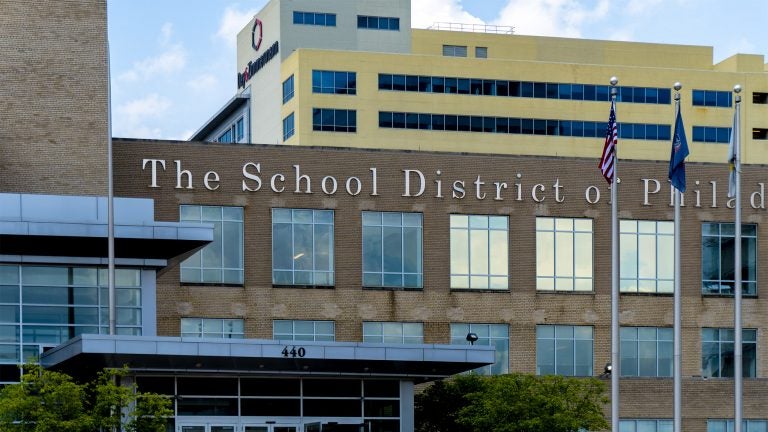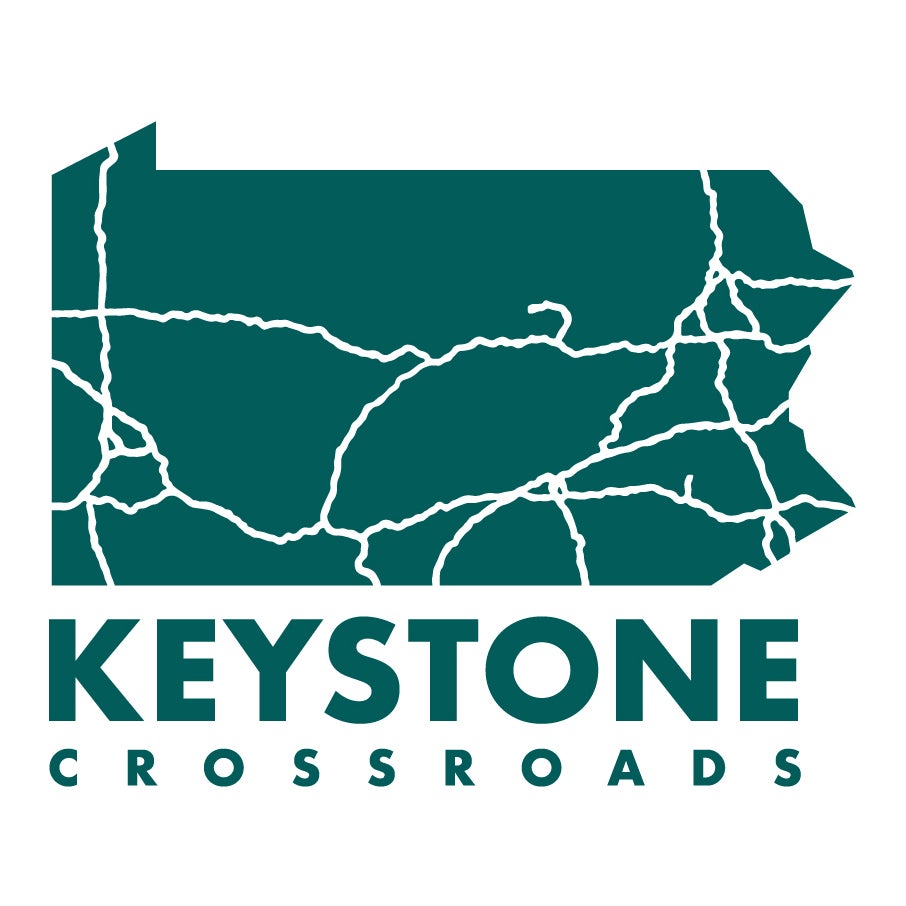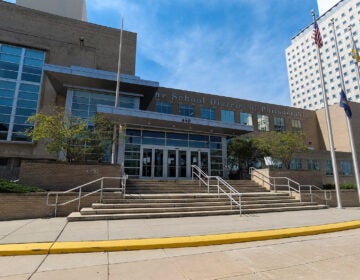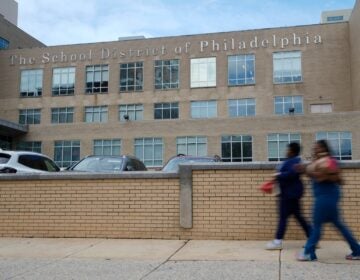Penn pledges $100 million to help fix Philly’s schools
Penn, which doesn’t pay property taxes, had been under growing pressure to support Philly’s public schools.

Philadelphia School District headquarters. (Danya Henninger/Billy Penn)
Updated 4:36 p.m.
The University of Pennsylvania has pledged to donate $100 million over the next 10 years to the School District of Philadelphia, the university and local officials announced Tuesday.
The money will be used to improve building conditions and remediate hazards such as asbestos.
The university and the school district called the donation the “largest contribution to the School District in its history.”
“Nothing is more important than the health and welfare of our children, and few things are more crucial to a community than the safety and quality of its public schools,” said Penn President Amy Gutmann in the release. “When Philadelphia’s schools and school children succeed, all Philadelphia succeeds.”
Penn has been under growing pressure from faculty, students, and others to provide more financial support to Philadelphia’s public school system, which has been under financial distress for years.
Because of its nonprofit status, Penn does not pay property taxes on its considerable West Philadelphia landholdings.
Community members have pushed the university to make payments in lieu of taxes (PILOTs), which other Ivy League institutions such as Harvard and Yale already do.
Penn’s donation comes in addition to its work with some of the neighborhood public schools bordering its University City campus. Most notably, Penn makes annual, per-student payments to support Penn Alexander, a K-8 school.
“I really wanted to do something that was citywide,” said Gutmann in an interview. “As a university we’re citizens of the whole city.”
“It’s just a very meaningful thing for me and for Penn to be able to do,” she added.
The school district’s facilities crisis has been well-documented.
The district has careened between financial crises for decades, unable to raise its own taxes and dependent on funding from city and state government, both of which are grappling with uncertainty due to the pandemic economy. District officials project the city school system will be back in the red by 2021.
While the district scrapes to stay afloat, its buildings have fallen into disrepair.
Officials estimate there are roughly $4.5 billion in unmet maintenance needs, an estimate borne from its own attempts to draw attention to the plight of some of its facilities. Scrutiny of the district’s infrastructure woes grew after an investigative series from The Philadelphia Inquirer focused on asbestos and lead exposure in the city’s public schools.
Shortly thereafter, the Philadelphia Federation of Teachers began a campaign focused on environmental conditions, headlined by the news that a longtime teacher had a type of cancer caused by asbestos exposure.
After those revelations, the school district temporarily closed and remediated several schools where inspections revealed damaged asbestos. Since 2018, the district says it’s stabilized lead paint in 54 elementary schools and spent millions fixing asbestos-related problems.
News coverage of — and community reaction to — Philadelphia’s crumbling schools prompted Penn’s interest in the pledge, according to Gutmann. She said the university will use money from the president’s discretionary fund to make the gift, which is why it’s broken up into ten payments over ten years.
“All Philadelphia students deserve high quality and safe learning environments, but we know that achieving this system-wide in our aging school buildings requires significant resources,” said Mayor Jim Kenney in a statement. “I commend the University of Pennsylvania and Dr. Amy Gutmann for this historic gift. It will go a long way in accelerating the District’s aggressive environmental remediation work.”
Jerry Jordan, president of the city’s teachers’ union, called it an “extraordinary day” for the city’s school children and educators.
For years, we have identified and defined the problems — toxic asbestos and lead, mold, and other “hazards — and we have identified the resources needed to ensure that our schools are safe and healthy,” said Jordan in a statement. “We know what $100M will do: massively overhaul the toxic conditions in so many of our schools.”
For some university critics, the mere mention of Penn’s pledge as a “gift” or “donation” will rankle. Those critics believe Penn owes the city’s school system some sort of regular, voluntary payment.
“The fact that Penn is making this first step really emboldens us to continue mobilizing to see that it pays what it truly owes, down the road, on an ongoing basis,” said Amy Offner, a Penn history professor and organizer with the group with Penn for PILOTs.
Offner’s group has called on the university to pay $40 million annually to the school district, a number that they say represents 40% of Penn’s exempted property tax obligation.
Penn did pay about $2 million annually to the school district in the late 1990s, but later dropped the initiative. Penn regularly notes that it’s the city’s largest private employer and contributes other forms of revenue — such as via the city wage tax — as a result.
Penn’s latest pledge is worth $10 million per year over the next 10 years, but the announcement does not mention financial commitments beyond the coming decade.
Both Penn and its critics agree, however, on one point: They hope the gift will inspire similar pledges to the school district.
“We are thrilled to have this very generous contribution from the University of Pennsylvania,” said Superintendent Dr. William Hite. “It will be a great support as we move forward to address the immediate environmental conditions in all of our schools. This will allow us to shift our focus to creating 21st century learning environments for all students. ”

Get more Pennsylvania stories that matter
WHYY is your source for fact-based, in-depth journalism and information. As a nonprofit organization, we rely on financial support from readers like you. Please give today.







